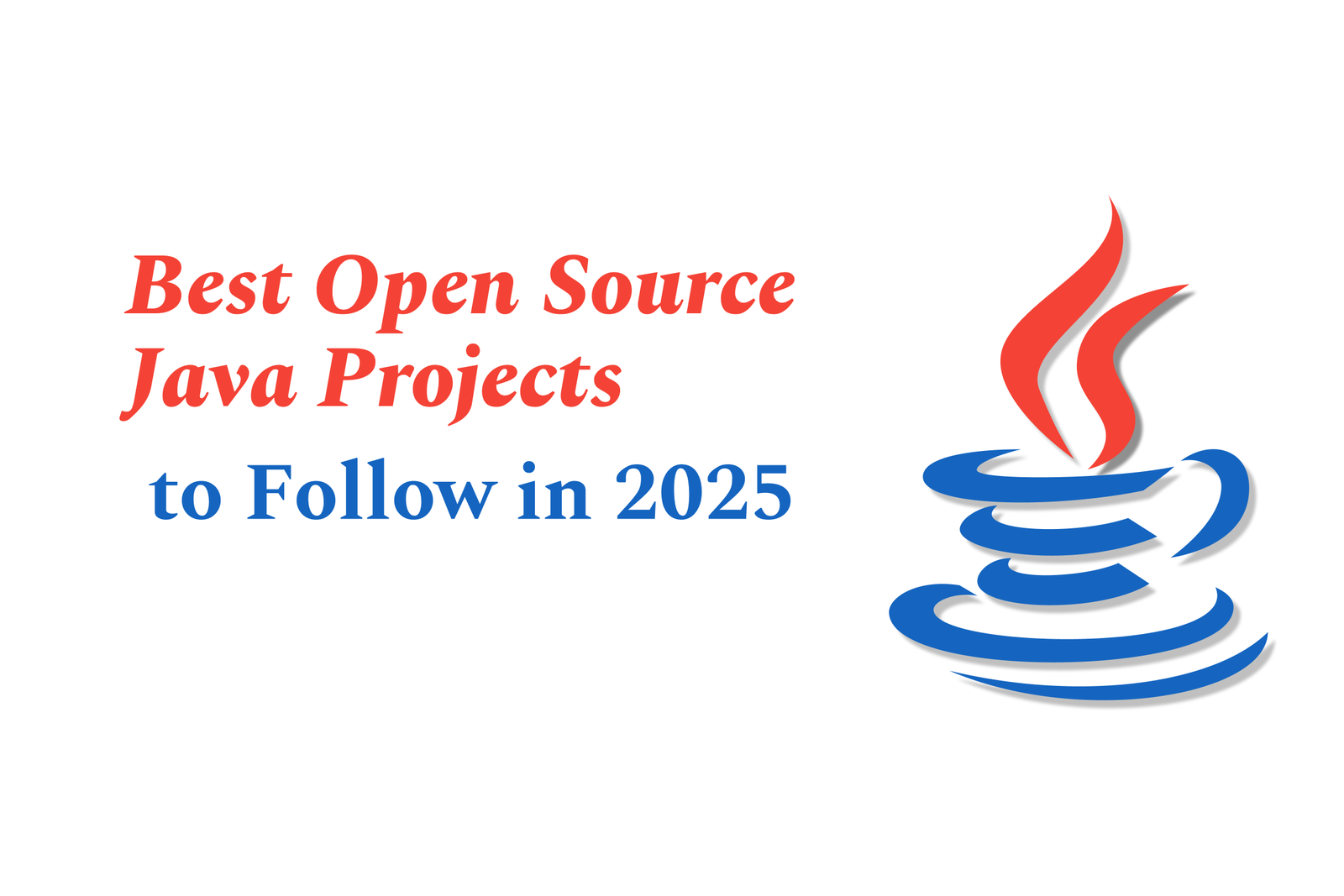Best open source java projects to follow in 2025
Best open source Java projects to follow in 2025 are dynamic, community-driven repositories that showcase cutting-edge Java development, from frameworks to applications. They offer learning, collaboration, and real-world coding experience, helping developers stay current and enhance their skills.
Best Open Source Java Projects to Follow in 2025
1 ) Introduction to Open Source Java Projects
Contributing to open source projects is an excellent way for Java developers to improve skills, gain real world experience, and expand professional networks.
Open source software powers the majority of modern applications, and involvement helps developers stay current and impactful.
The article emphasizes the value of following and contributing to vibrant open source Java projects in 2025 to grow as a developer.
2 ) Why Contribute to Open Source Java Projects?
Gain practical coding experience on real projects.
Sharpen Java programming and software development skills.
Collaborate with global developer communities.
Build a professional portfolio showcasing contributions.
Learn best practices and coding standards relevant to industry projects.
3 ) How to Get Started with Open Source Contributions
Choose a Java project aligned with your interests or expertise areas, such as Spring based projects if preferred.
Fork the repository to create a personal copy.
Make code improvements, fix bugs, or add features.
Submit pull requests to share contributions with project maintainers.
Engage in discussions to better understand project standards and guidelines.
4 ) Recommended Types of Open Source Java Projects to Follow
Popular frameworks and libraries (e.g., Spring ecosystem projects).
Applications demonstrating networking, multithreading, and UI with Swing.
Projects emphasizing clean code, best programming practices, and maintainability.
Tools supporting project management, agile development, and collaboration.
5 ) Example Java Projects Highlighted for Learning
Java Chat Application: A tutorial styled project showcasing networking, multithreading, Swing GUI design, and event handling. It's ideal for beginners keen on building interactive desktop apps.
OpenProject: An open source project management software providing classic and agile workflows. It is a mature Java project that demonstrates extensive real world application of Java technologies.
6 ) Best Practices and Insights from Open Source Java Projects
Importance of adhering to consistent code style and programming conventions to improve maintainability.
Tracking how active open source Java repositories evolve in their adoption of best coding practices.
Continuous learning through contribution fosters better code quality and developer proficiency.
7 ) Tools and Resources for Java Open Source Development
Version control and collaboration through GitHub.
Use of project management tools like OpenProject and Taiga to organize contributions.
Engaging with community forums and issue trackers to stay involved.
8 ) Key Takeaways
Following and contributing to open source Java projects in 2025 offers growth in skills and career.
Starting with beginner friendly projects and advancing to complex frameworks provides a comprehensive learning path.
Contributing is accessible and rewarding, requiring simple steps facilitated by modern tools and active communities.
Staying involved with community updates and evolving coding practices ensures continued developer success in Java open source development.
https://justacademy.in/news-detail/flutterflow-and-low-code-revolution-in-2025
https://justacademy.in/news-detail/flutter-sdk-updates-in-july-2025
https://justacademy.in/news-detail/android-performance-benchmarking-updates
https://justacademy.in/news-detail/flutter-layout-grid-system-update
https://justacademy.in/news-detail/swift-package-manager-updates-for-easier-dependency-management
Related Posts
In 2025, top Angular libraries offer modern, feature-rich components and tools for building dynamic web apps. From powerful data grids to low-code platforms like UI Bakery, these libraries enhance development speed, UI design, and scalability, making them essential for Angular developers.
Migrating from AngularJS to Angular 17 involves gradually upgrading your app by running both frameworks together using tools like ngUpgrade, rewriting components in TypeScript, and adopting Angular’s modern architecture to enhance performance, maintainability, and long-term support.
Angular state management tools help organize and handle app data efficiently, improving scalability and maintainability. Popular options include NgRx for robust, RxJS-based patterns, and newer Signal Store solutions that offer simpler, reactive approaches integrated tightly with Angular’s latest features.
RxJS in Angular empowers developers to manage asynchronous data streams with powerful operators like `forkJoin`, `combineLatest`, and `zip`. Mastering these key operators in 2025 is essential for building efficient, reactive applications that handle complex event sequences seamlessly.
Angular performance optimization in 2025 focuses on improving app speed and responsiveness by using techniques like OnPush change detection, lazy loading, efficient data caching, and AOT compilation. These practices reduce load times, enhance user experience, and ensure scalable, fast Angular applications.
In 2025, Angular remains preferred for large-scale, enterprise apps with its robust, all-in-one framework, while Vue attracts developers seeking simplicity and fast development for smaller projects. Both frameworks excel, with choice driven by project needs and team expertise.
Angular Signals are a new reactive primitive in Angular 16 that enable fine-grained, efficient change detection by automatically tracking dependencies and updating only affected parts of the UI. They simplify state management and boost app performance, revolutionizing Angular's reactivity model.
Angular interview questions to prepare in 2025 focus on core concepts like components, directives, data binding, routing, and dependency injection, along with TypeScript mastery and latest Angular features to ensure strong practical knowledge for building scalable, efficient web applications.
AngularJS reached its official end of support in January 2022, meaning no further updates or security patches. To ensure app security and performance, developers should consider migrating to modern Angular versions or seek third-party long-term support options if immediate migration isn’t possible.
The Angular Roadmap 2025 highlights upcoming features focused on improving developer experience and performance, including zoneless Angular, Signals integration, enhanced Forms, async data handling, improved HMR, and expanded Angular Material/CDK enhancements, driving modern, efficient web app development.










